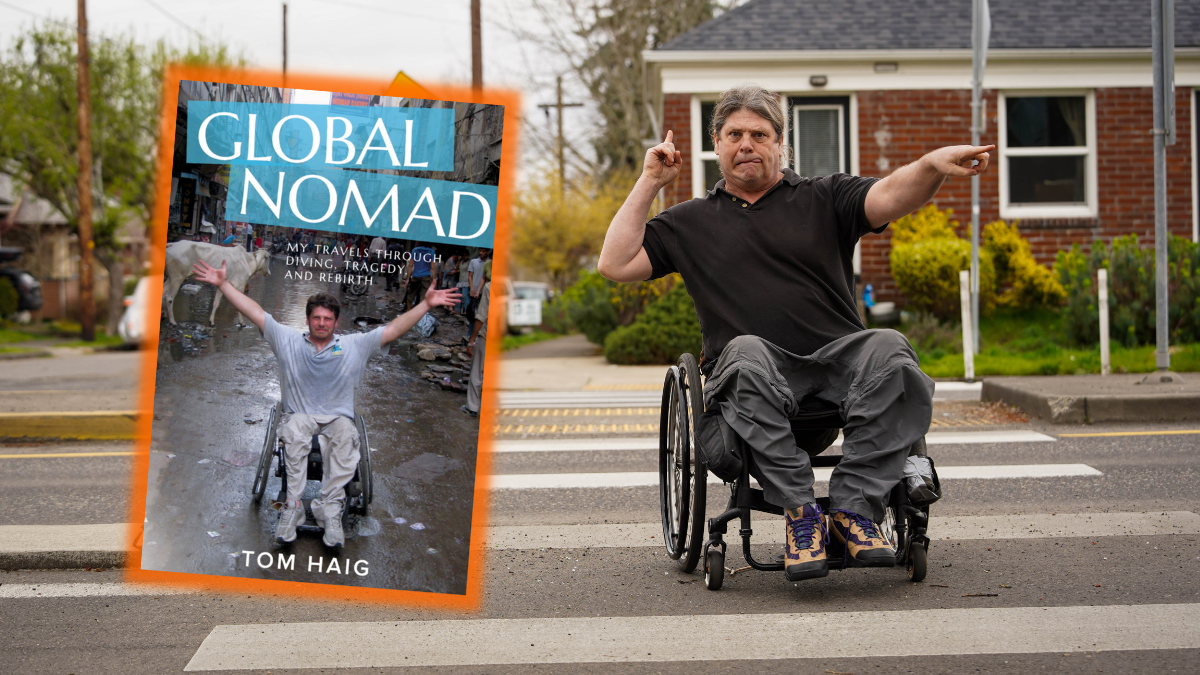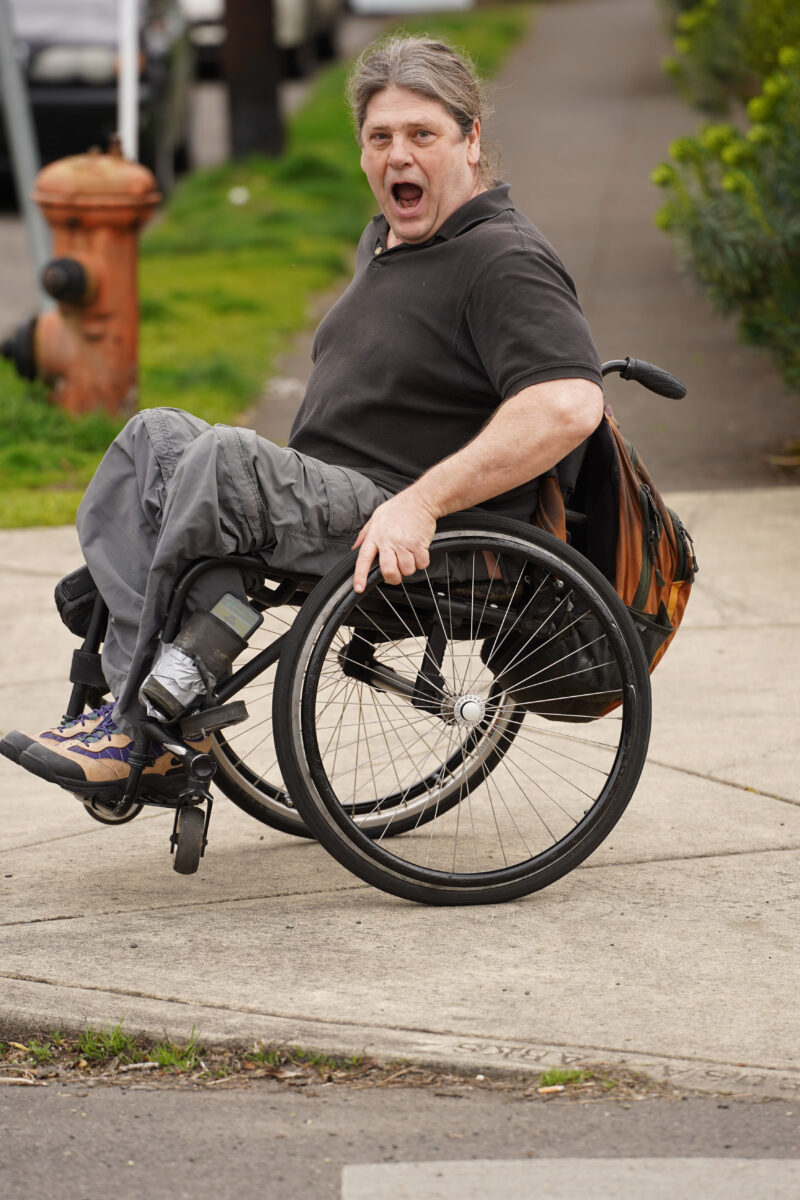
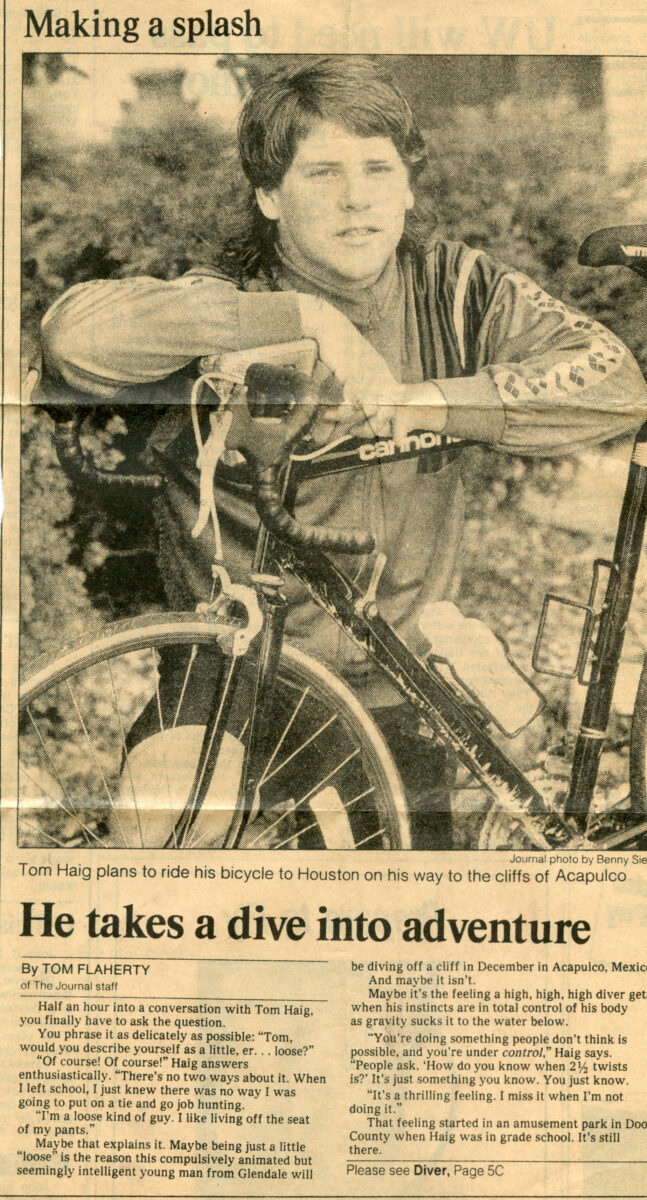
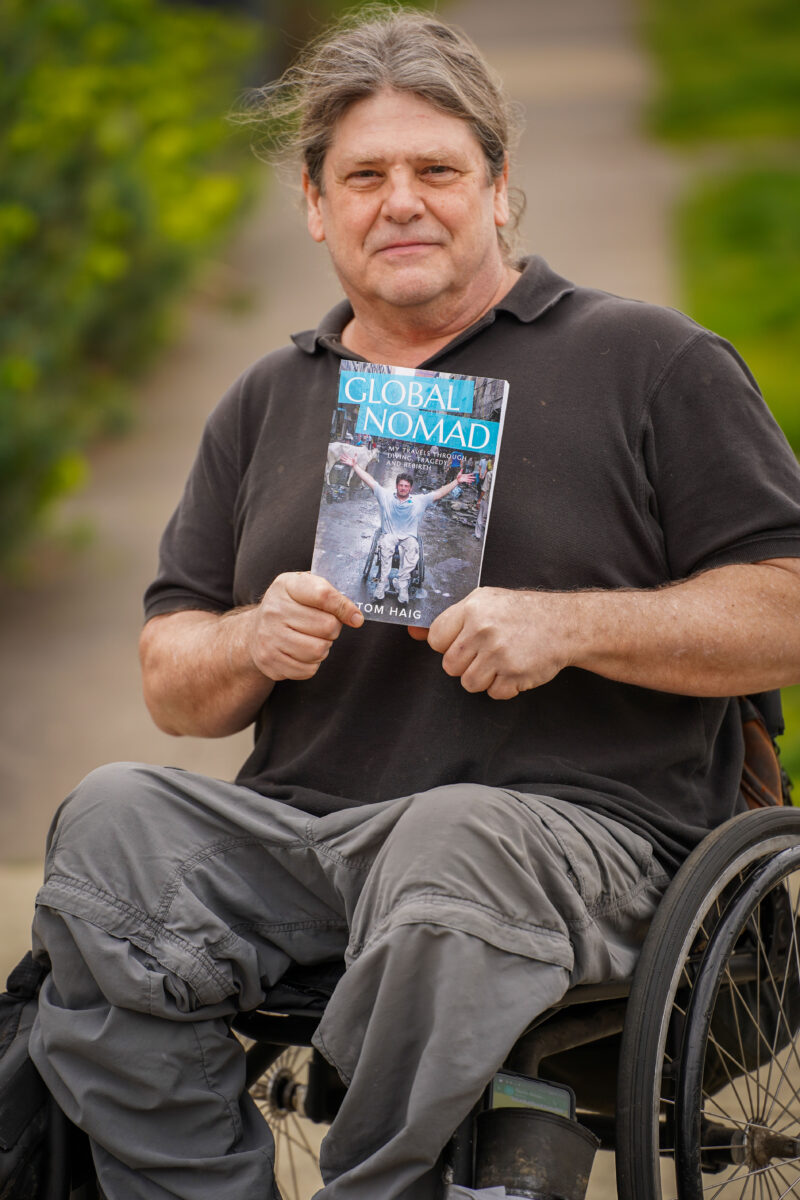
“The more I stayed on the bike, the more positive minutes I would have in my day… I was like, ‘alright, the way through this is the way you got into it. It’s through the bike.'”
-Tom Haig
Whether diving into water from a 150-foot perch or facing the reality of a bike crash that left him paralyzed, Portlander Tom Haig’s life has been defined by decisive seconds and an embrace of challenges.
Haig has experienced as many highs and lows as he has adventures across the globe — and you can now read all about them in his new book Global Nomad, My Travels through Diving, Tragedy, and Rebirth (2022, WSU Press). I recently chatted with Haig, who is now a communications specialist with the Portland Bureau of Transportation, to hear about his book and learn more about his epic story.
Haig started his thrill seeking career as a competitive cliff diver and member of a touring circus high dive troupe. (No joke.) When he wasn’t plunging into water headfirst from 70 feet in the air, he was riding his bike: through the humid air in the Ozarks, in the foothills of the French Alps — or once, all the way from Wisconsin to Mexico for an Acapulco cliff diving competition. Those escapades were all more than 30 years ago, but Haig isn’t done yet.
However, his adventures look a little different these days.
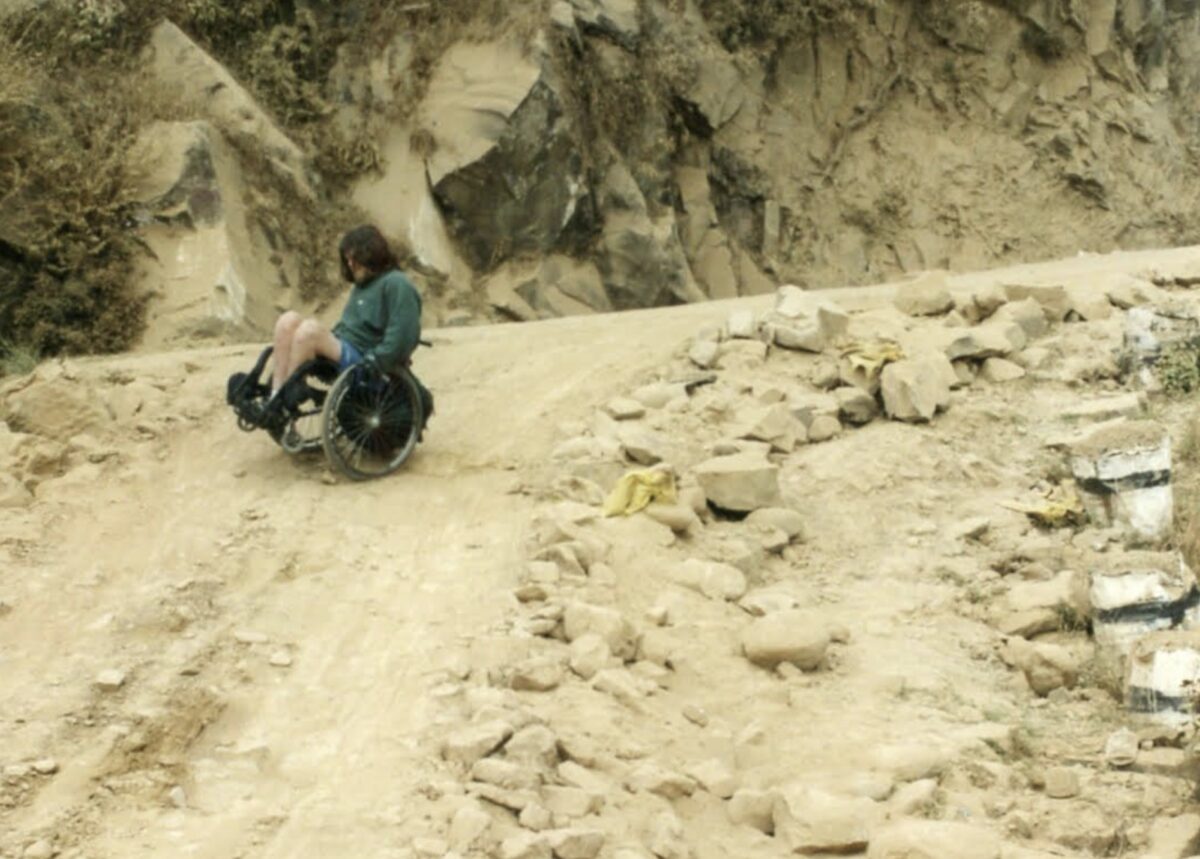


After traveling the world, Haig decided to settle down in Portland in the early 1990s — in part because of the great cycling opportunities. After getting used to scaling the countryside in the French Alps on his bike, Haig needed to live somewhere with some elevation.
“You can do anything here. If you want to ride flats for 50 miles, you can do it. If you want medium hills, go to the Coast Range, and if you want big ones, you have the Cascades,” Haig told me. “So I just fell in love. I became a cycling nut.”
“I wasn’t feeling pain. I was watching the first 35 years of my life vanish with every passing second.”
Throughout his journeys, Haig had several dramatic brushes with danger: a car crash in Taipei, an encounter with the police in Abu Dhabi and nearly cracking his head open on the cliffs of Acapulco while practicing a never-before-seen diving feat. But it was a standard, run-of-the-mill bike ride on a Sunday morning in Portland that would prove to have the biggest impact on Haig’s life.
Haig has an astonishingly clear recollection of what happened on that Sunday morning in 1996. As he describes it, he was “riding hard” on his road bike down SE Sandy Blvd where it turns into 7th Ave at Stark. A driver busted through a stop sign and Haig turned around to tell her off, losing sight of the 24-foot truck ahead.
“I was a pretty good bike handler, I’d ridden in pretty crappy conditions,” Haig said. “But as I went for my brake, my brake cable snapped. And instead of a controlled slide off my bike, I went falling. My head bounced off his bumper and my butt hit the road — it was a compression fracture. I knew almost instantly that I had a spinal cord injury.”
In his book, Haig writes that he wasn’t feeling pain in this moment. Instead, he was “watching the first 35 years of [his] life vanish with every passing second.”
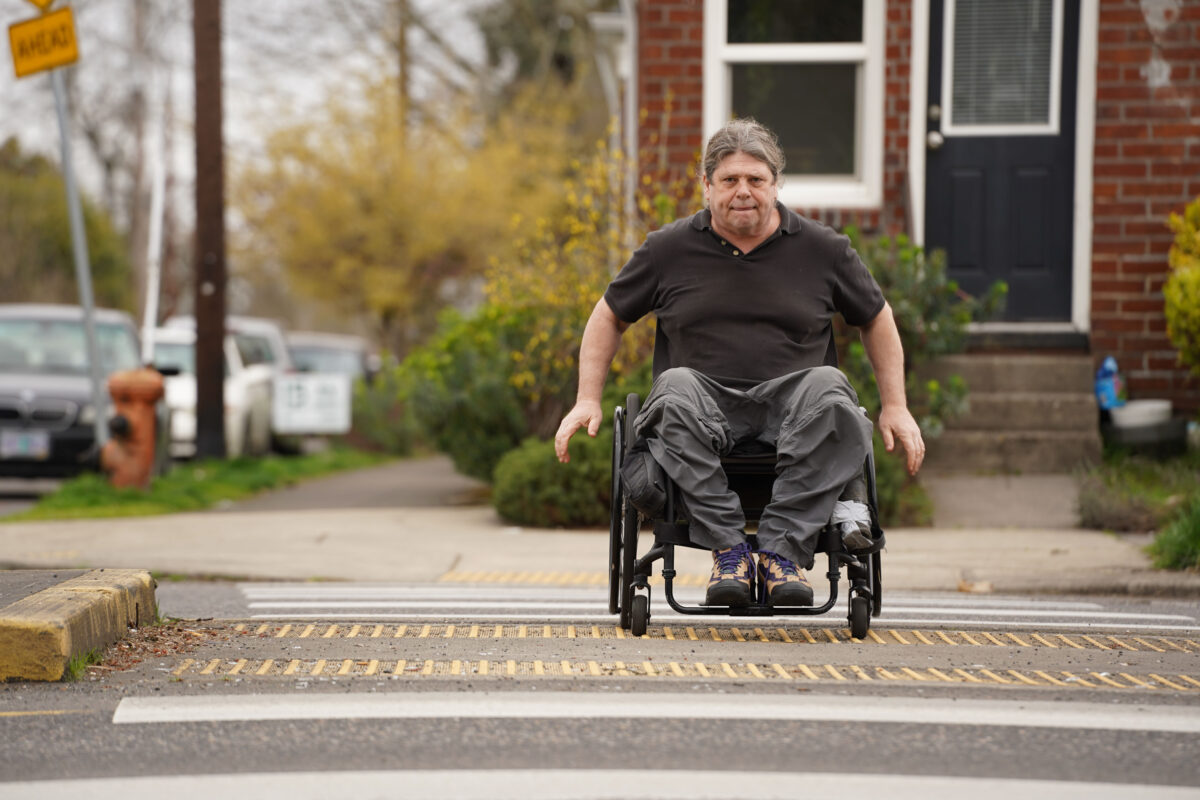
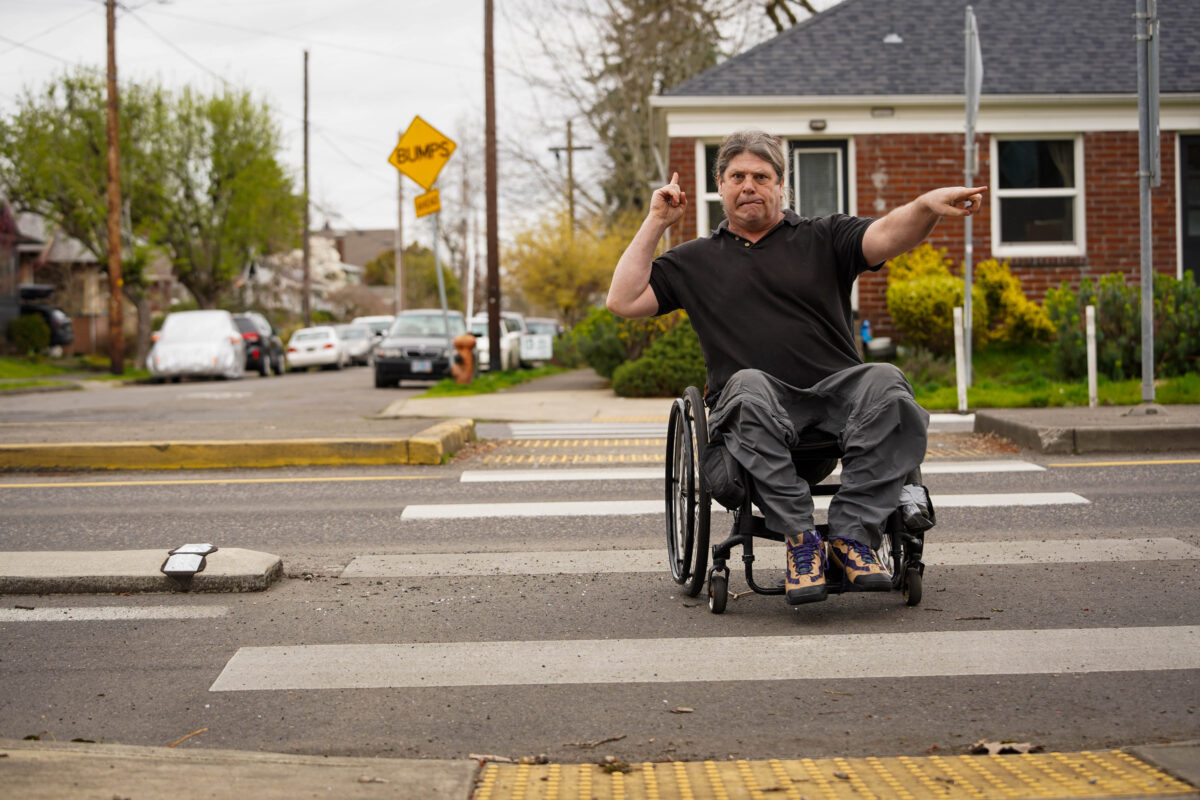
“I seriously think for a person with a disability, Portland is the most progressive town I’ve ever been to in my life. That’s one of the biggest reasons I’m here.”
As it turns out, Haig did have a spinal cord injury that left him paralyzed from the waist down. Haig said that everything he knew about his life so far was gone, and in the months that followed, he doubted whether or not he wanted to keep living.
“I was like, ‘I want out,'” Haig said. “I wanted no part of living in a wheelchair.”
Haig shared that a major saving grace for him ended up being hand cycling. After his injury, his old diving teammates got together to raise $2,400 for a Lightning handcycle. It was tough to figure out at first, but he didn’t stop trying, and eventually he was a pro with the recumbent bike.
“Gradually, the more I stayed on the bike, the more positive minutes I would have in my day,” Haig said. “It took quite a while before the demons started going away…but I was like, ‘alright, the way through this is the way you got into it. It’s through the bike.'”
From there, Haig became a competitive hand cyclist, and he resumed his old vagabond lifestyle too. As he traveled the world again — this time needing to navigate the world quite differently than in the past — he realized how unaccommodating so much of the world is for people with disabilities.
Haig and his brother Andrew (who just so happens to be the director of the University of Michigan’s Spine Center), started a nonprofit called the International Rehabilitation Forum to “bring together people and institutions to build rehabilitation medicine in low-resource and isolated countries.” Through this program, Haig has travelled to countries like Albania, Ghana, India, Bangladesh, Nepal and Senegal, embedding himself in disability communities and documenting the experiences through short films.
While he’s committed to a nomadic lifestyle, Haig remains a proud Portlander. He says there’s no better place to be, especially for someone with a disability.
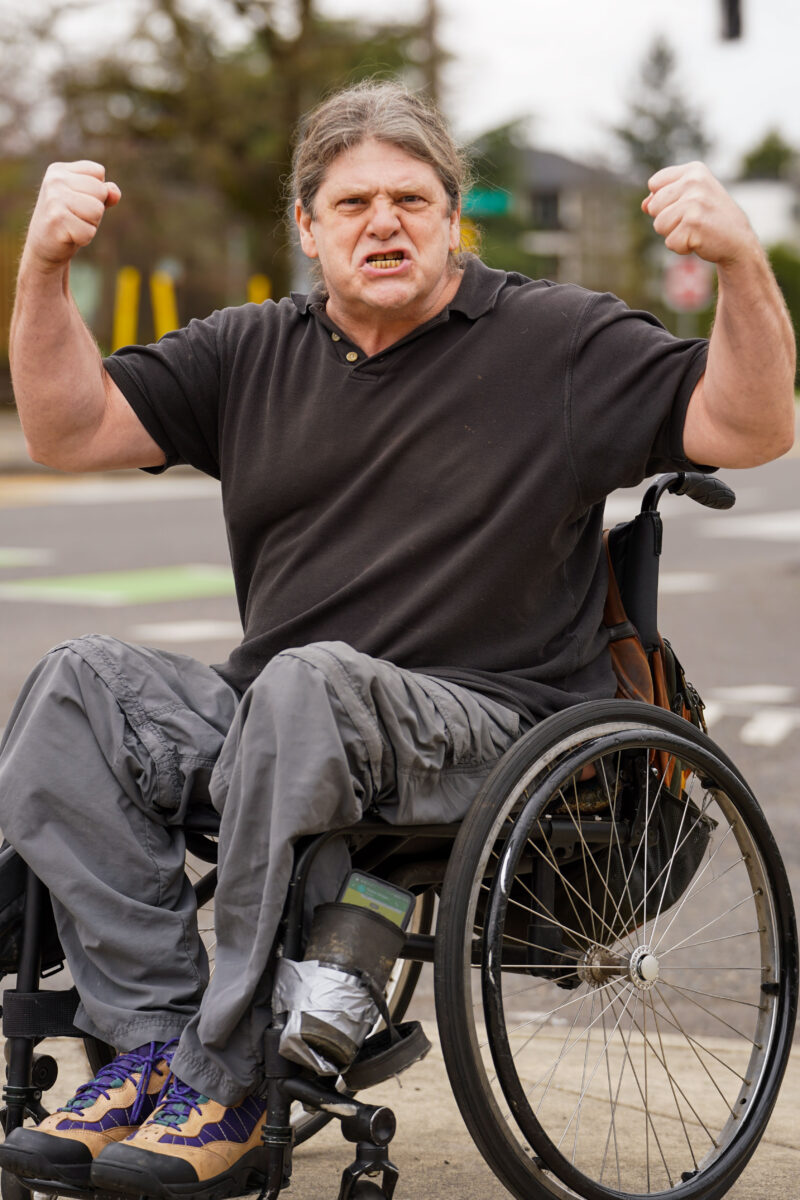

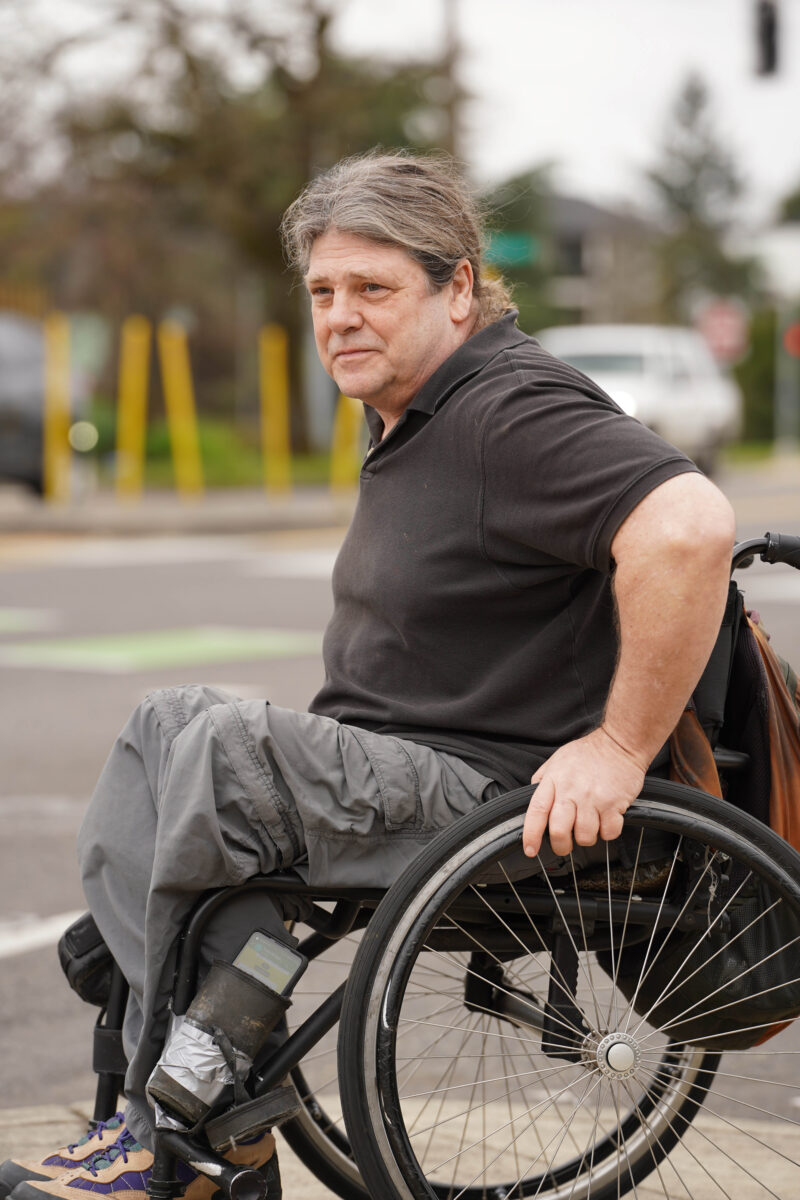

“I seriously think for a person with a disability, Portland is the most progressive town I’ve ever been to in my life. That’s one of the biggest reasons I’m here,” Haig said. While he added that things could always be better, he said Portland stands out in comparison to other cities around the country and across the world.
One of the reasons for this is our transportation system. Haig gave a shoutout to Adaptive Biketown, the Portland adaptive bike rental program co-run by Biketown and Kerr Bikes.
“They’re fantastic. Anyone who’s not comfortable with a regular bike can reserve a bike free for an hour,” Haig said. “And they have so many different types of bikes over there. Once people start going there, then they just keep going back and back. One of my favorite things about working with the city is working with Adaptive Biketown.”
One piece of wisdom Haig has to offer people? If you can, get on your bike.
“It’s such a precious thing to be able to be a bike rider in our town, so take advantage of it,” Haig said. “Get on your bike and ride for fun, ride to work, just ride. That’s coming from someone who lost their ability to walk because he rode so much.”
This is only a small taste of the story Haig tells in Global Nomad, an entertaining read that bursts with fun details and inspiring energy. Learn more about Haig and his work at his website. You can order his book here.
